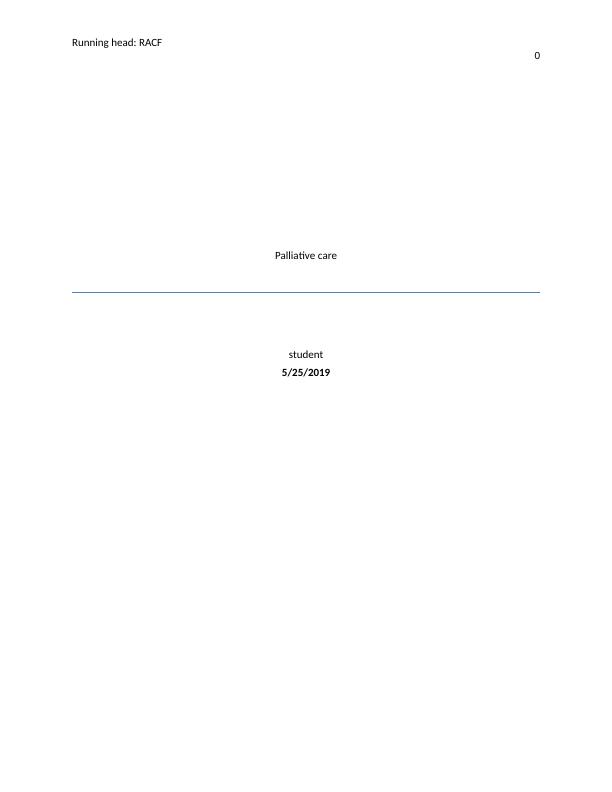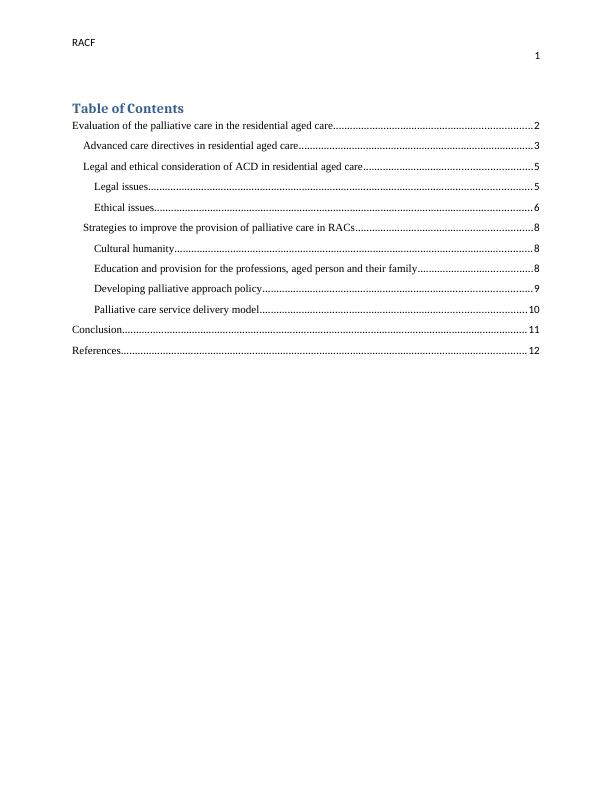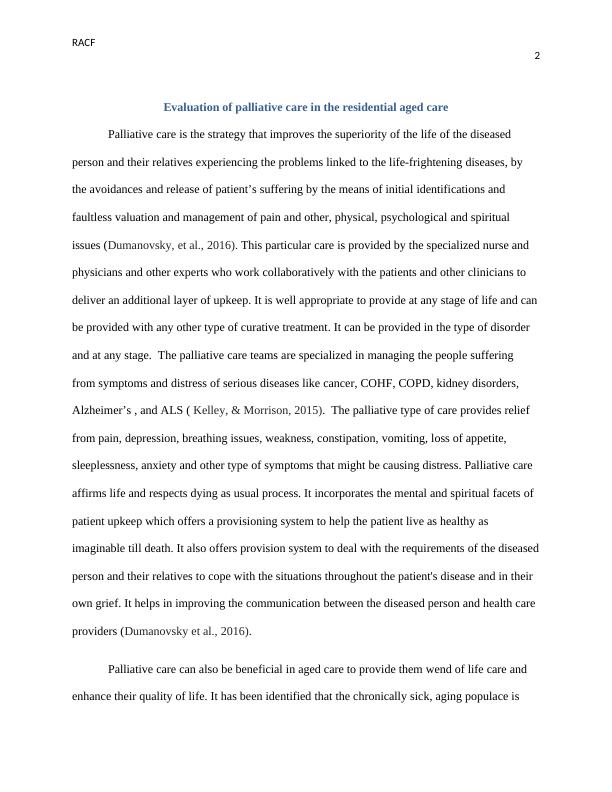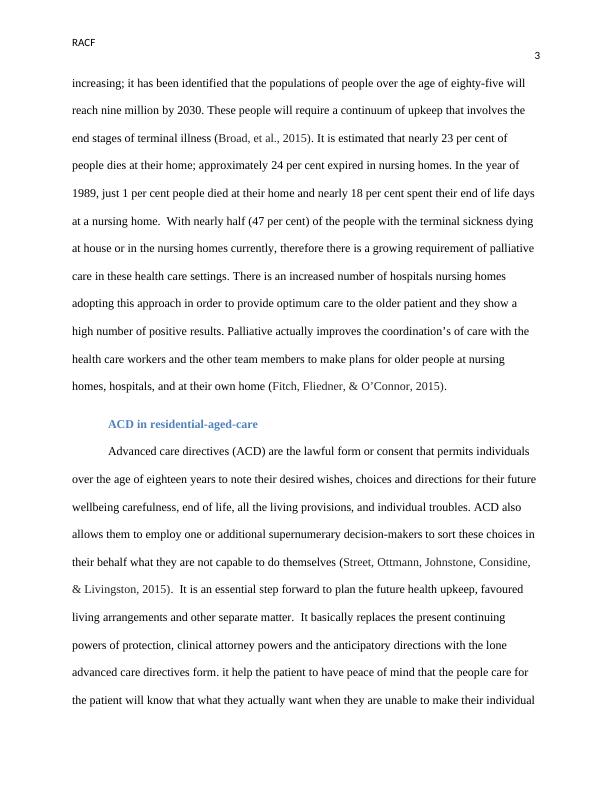Evaluation of Palliative Care in Residential Aged Care
Write an analytical report evaluating palliative care in residential aged care, including discussions on palliative care provision, advanced care directives, and strategies for improvement.
16 Pages3849 Words272 Views
Added on 2023-04-04
About This Document
This document discusses the evaluation of palliative care in residential aged care, including its impact on the quality of life. It also explores the legal and ethical considerations of advanced care directives in aged care and provides strategies to improve the provision of palliative care in RACs.
Evaluation of Palliative Care in Residential Aged Care
Write an analytical report evaluating palliative care in residential aged care, including discussions on palliative care provision, advanced care directives, and strategies for improvement.
Added on 2023-04-04
ShareRelated Documents
End of preview
Want to access all the pages? Upload your documents or become a member.
Palliative Care in Residential Aged Care: Improving End-of-Life Stage for Aging Australians
|14
|3543
|469
Palliative Care for Elderly Patients and Their Families
|16
|4778
|483
Health and socio-political issues in aged-care
|13
|4873
|444
Analysis of Palliative Care in Residential Aged Care
|14
|3975
|250
Health and Socio-Political Issues in Aged Care
|16
|4746
|55
Palliative Care in Residential Aged Care: An Overview
|15
|4240
|32




